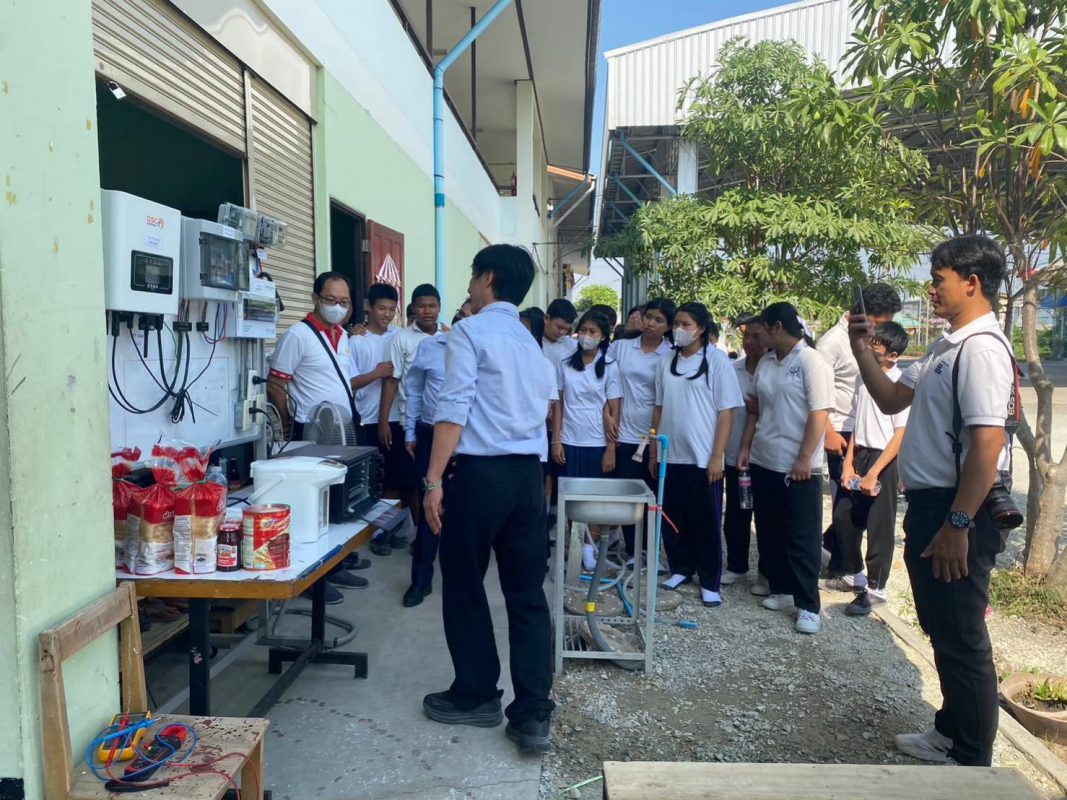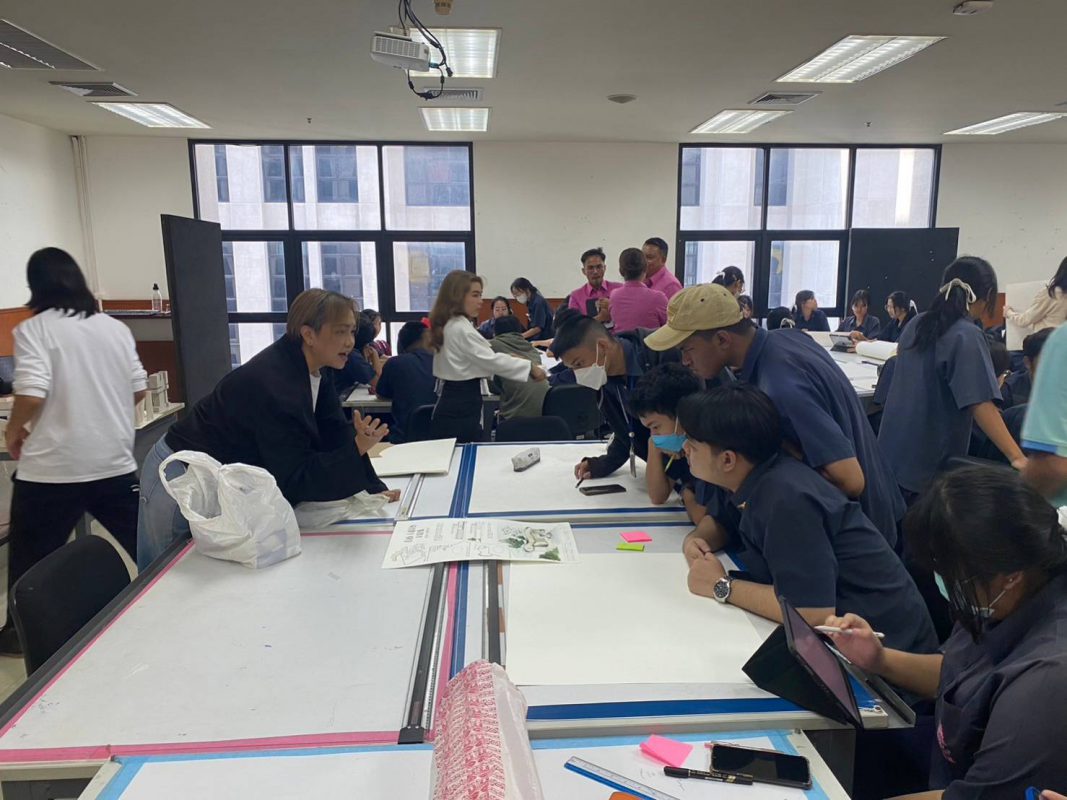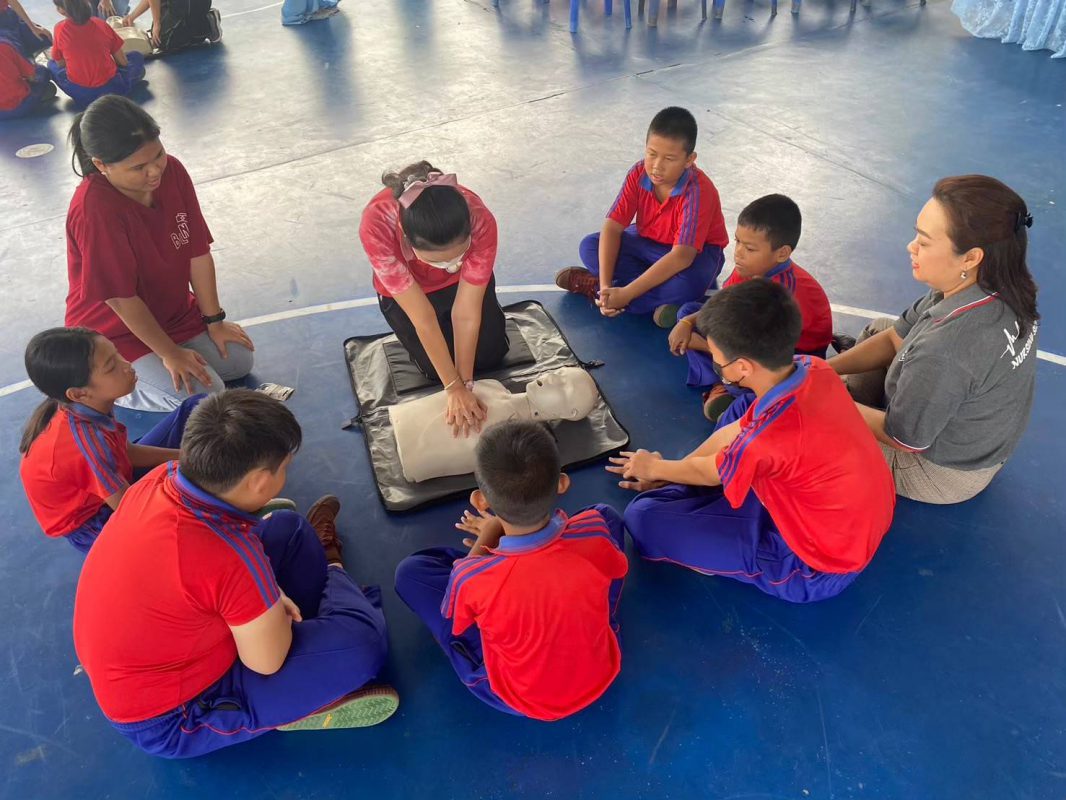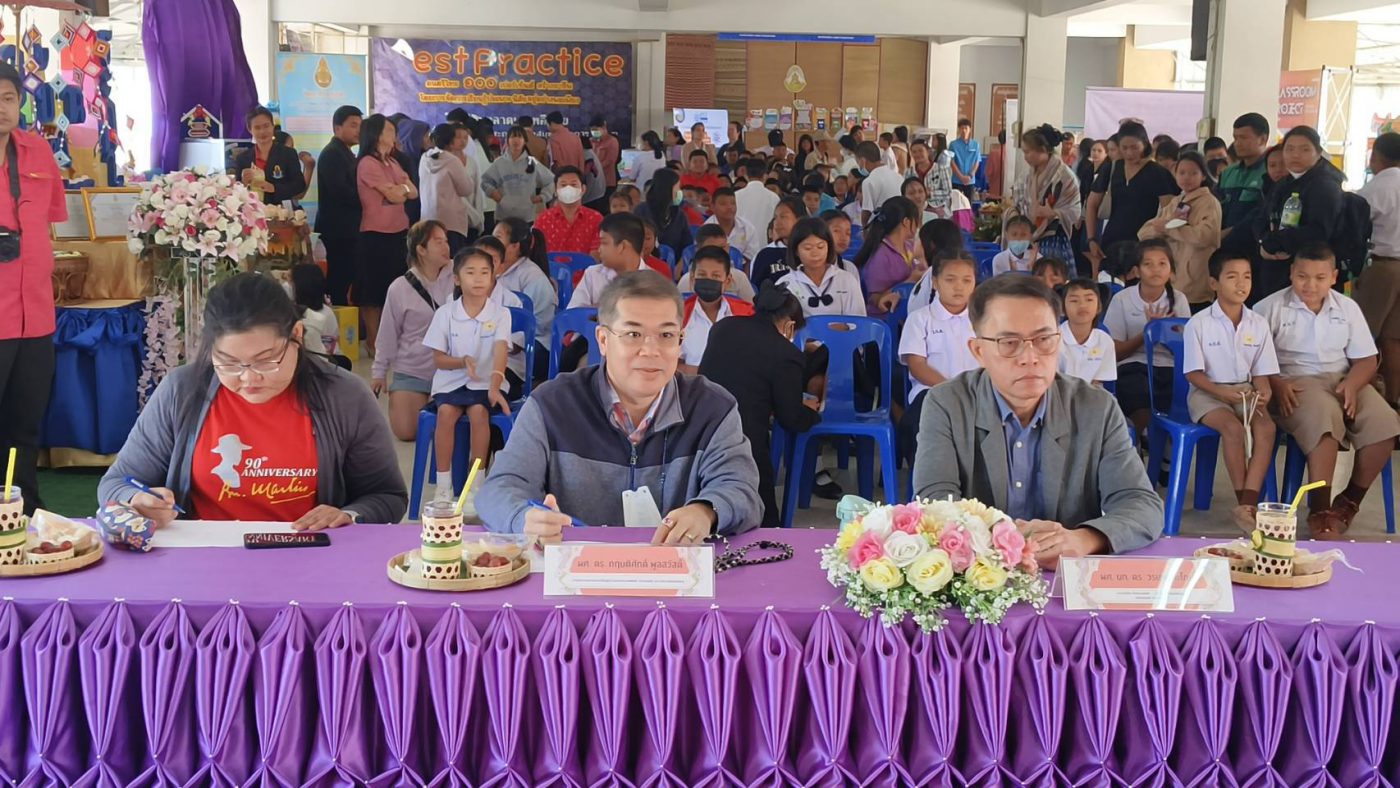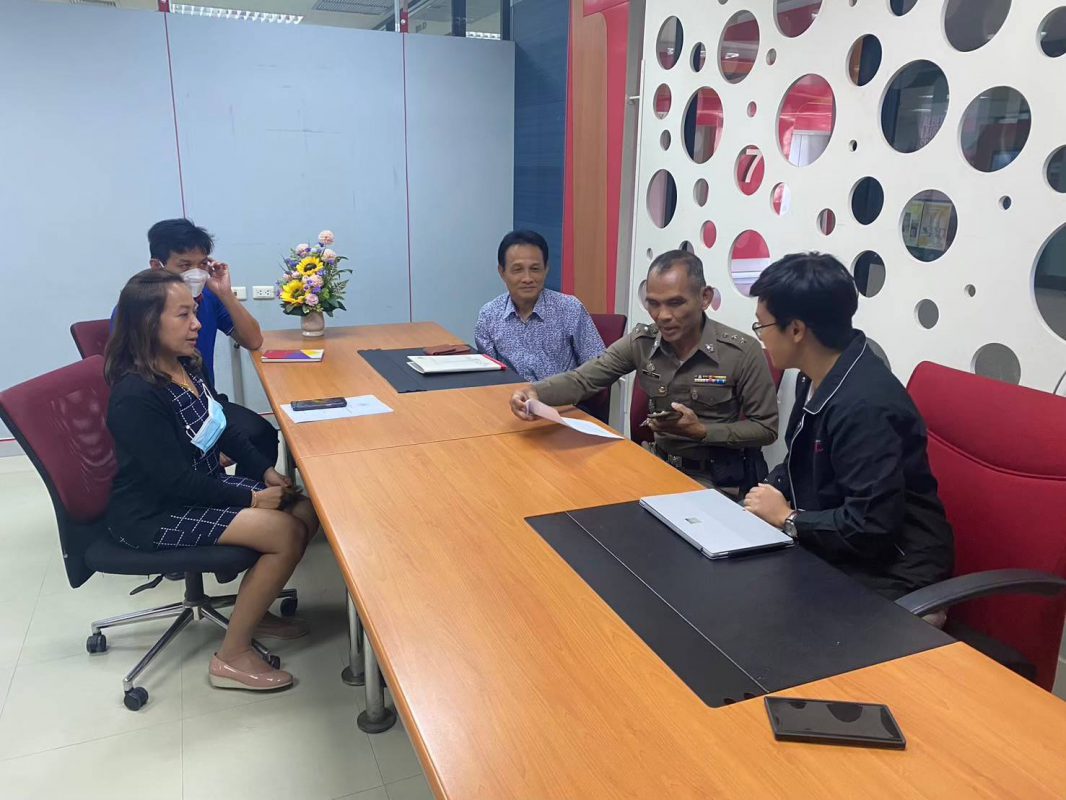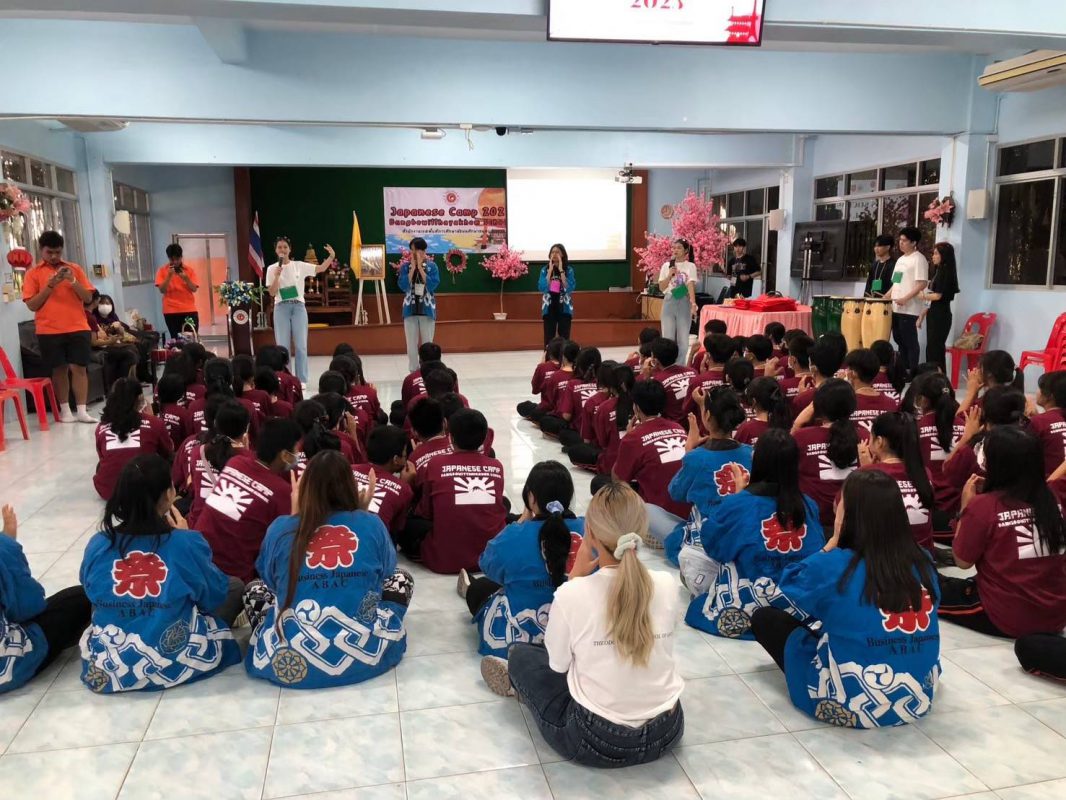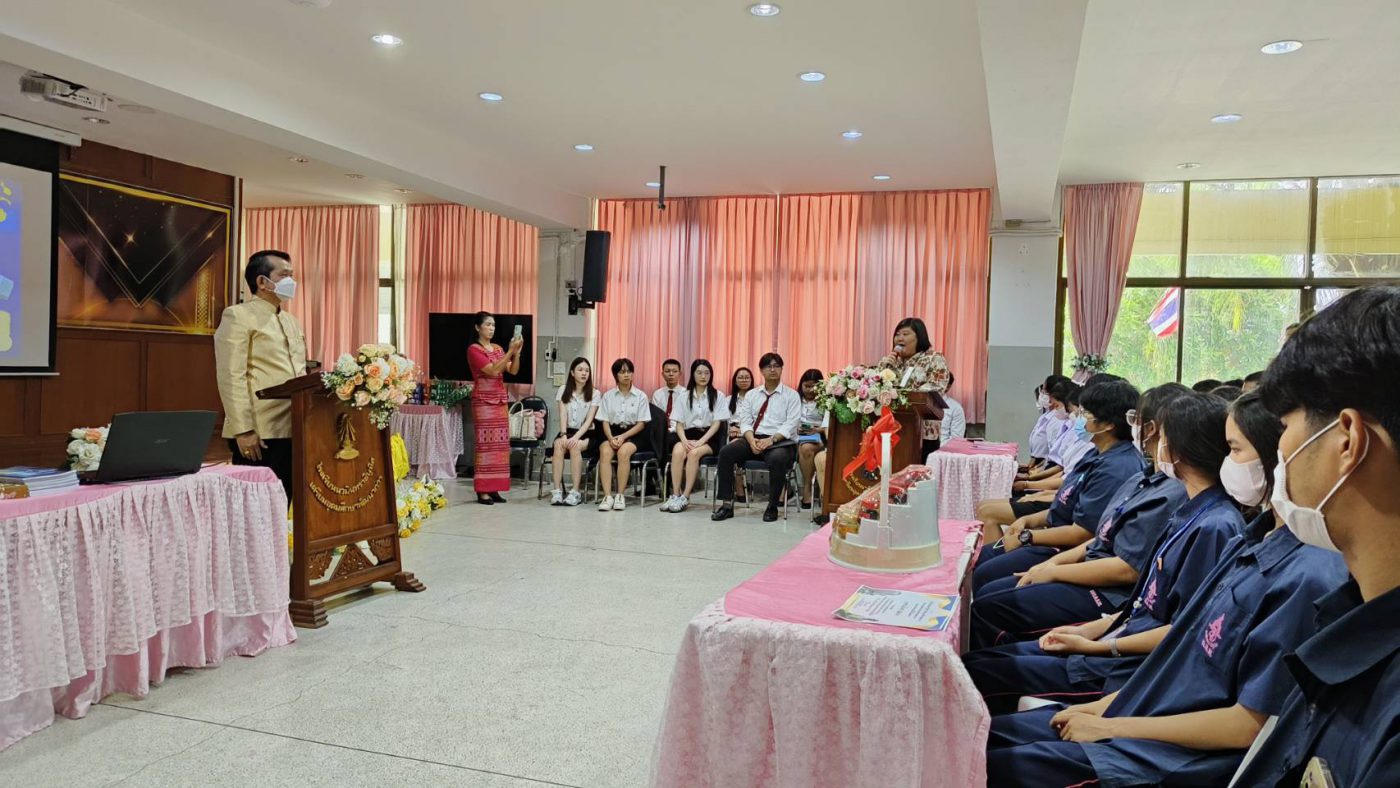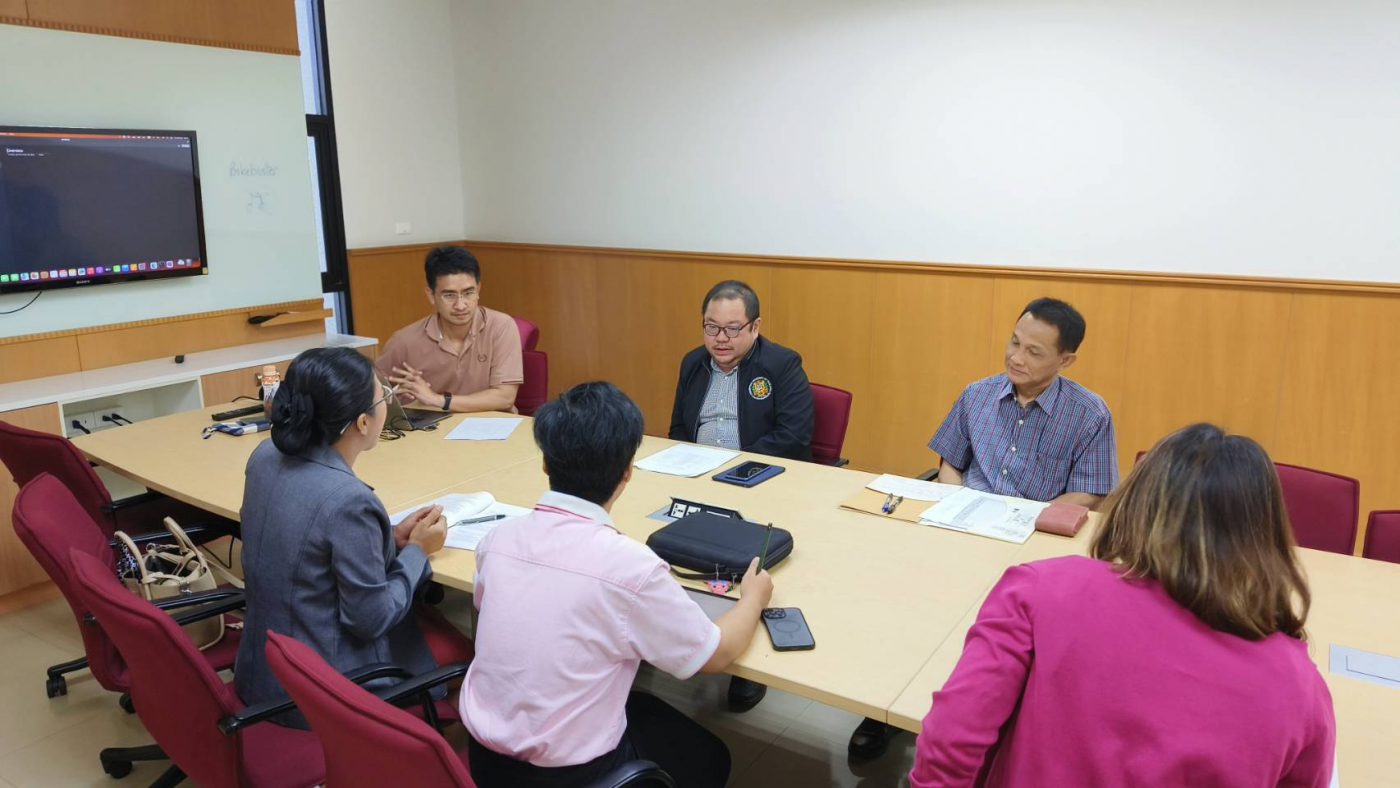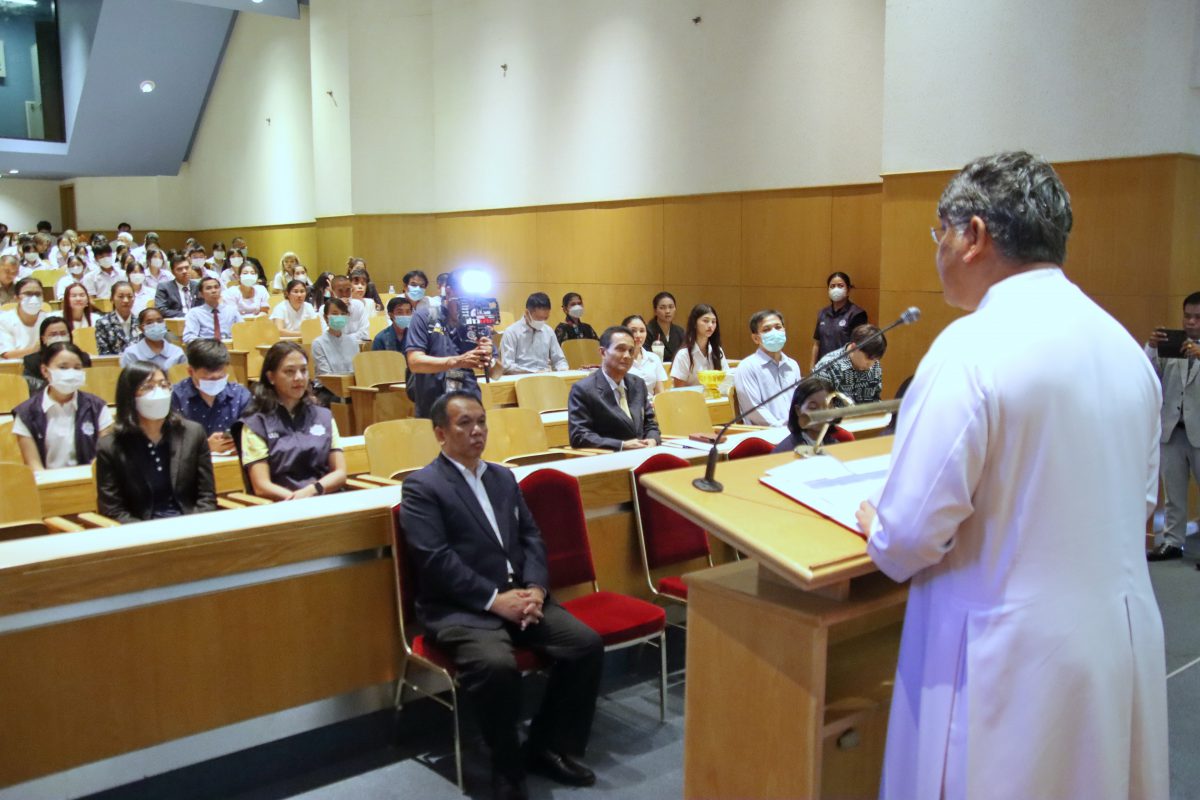The Institute for Research and Academic Services (IRAS), in collaboration with various faculties, organized an event to foster relationships between Assumption University and the surrounding communities on August 25, 2023, at the Suvarnabhumi Campus. The event was attended by representatives from local organizations in Bang Sao Thong and Bang Bo districts of Samut Prakan province, including district offices, local administrative organizations, police stations, health promotion hospitals, and schools.
The activities included an introduction to Assumption University’s academic services to society, presentations highlighting the expertise of different faculties in providing academic services, and a platform for hearing the community’s issues and needs for academic support from the University.
After receiving feedback on the community’s needs and concerns, Assumption University developed academic service projects to address these issues. The specific projects implemented by each faculty during the 2023 academic year are as follows:
- First Aid Training for Teachers/Students at Wat Khotharam School and Talat Pak Khlong Chao School (Faculty of Nursing Science)
- “Arts Social and Cultural Connect” Activity at Bang Bo School (Faculty of Arts)
- Singing Skills Training for Students from Bang Bo 2 School Group, covering 18 schools (Faculty of Music)
- Training on Solar Cell Technology and Energy Saving for Teachers and Students at Ban Rakat Community School (Faculty of Engineering)
- Consultation and Assistance in Designing Publicity Boards and Public Services for Bang Sao Thong Police Station (Faculty of Communication Arts)
- Basic Knowledge Training in Creative Architectural Design for Students at Nawaminthrachinuthit Triam Udomsuksa Pattanakarn School (Faculty of Architecture and Design)
- Consultation and Assistance in Developing a School Emergency Notification App for Teachers at Wat Sao Thong Nok School (Faculty of Science and Technology)
- Training on Personal Financial Management for Grade 11 Students at Nawaminthrachinuthit Triam Udomsuksa Pattanakarn School (Faculty of Business Administration and Economics)
Alignment with Sustainable Development Goals (SDGs):
- SDG 1: No Poverty
The various educational initiatives, such as financial management training and skills development in renewable energy, help equip individuals with the knowledge and tools to improve their economic circumstances and reduce poverty. - SDG 3: Good Health and Well-being
The First Aid Training project addresses public health by providing crucial skills to teachers and students in the event of health emergencies, ensuring better well-being within the community. - SDG 4: Quality Education
The projects implemented by the faculties directly contribute to quality education by offering specialized training, workshops, and academic support, thus enriching the educational experiences of students in local schools. - SDG 7: Affordable and Clean Energy
The Training on Solar Cell Technology initiative promotes sustainable energy solutions and the adoption of clean energy technologies in schools, thus advancing energy efficiency and sustainability. - SDG 9: Industry, Innovation, and Infrastructure
The various training programs, such as Creative Architectural Design and Emergency Notification App Development, foster innovation and the development of technical skills that contribute to infrastructure improvement in local communities. - SDG 11: Sustainable Cities and Communities
The community service projects, including designing publicity boards and developing emergency notification systems, contribute to enhancing the resilience and sustainability of communities by improving public services and infrastructure. - SDG 12: Responsible Consumption and Production
The energy-saving training in solar technologies promotes responsible consumption and encourages sustainable practices in the community, reducing the carbon footprint and promoting environmental sustainability. - SDG 13: Climate Action
Through the training on solar energy and energy-saving practices, the university encourages actions that mitigate climate change by promoting clean energy and reducing environmental impact. - SDG 16: Peace, Justice, and Strong Institutions
The collaboration with local authorities and the development of emergency notification systems help strengthen institutions and promote safety, justice, and the rule of law within communities. - SDG 17: Partnerships for the Goals
The collaboration between Assumption University and local communities exemplifies partnerships for sustainable development, as the academic expertise is effectively used to address community challenges and contribute to long-term goals.
Conclusion:
Assumption University’s Collaborative Community Service Projects reflect a strong commitment to addressing local needs while contributing to the achievement of multiple SDGs. These initiatives support sustainable community development, promote education, and foster innovation, ensuring a positive impact on both individuals and the broader society.
